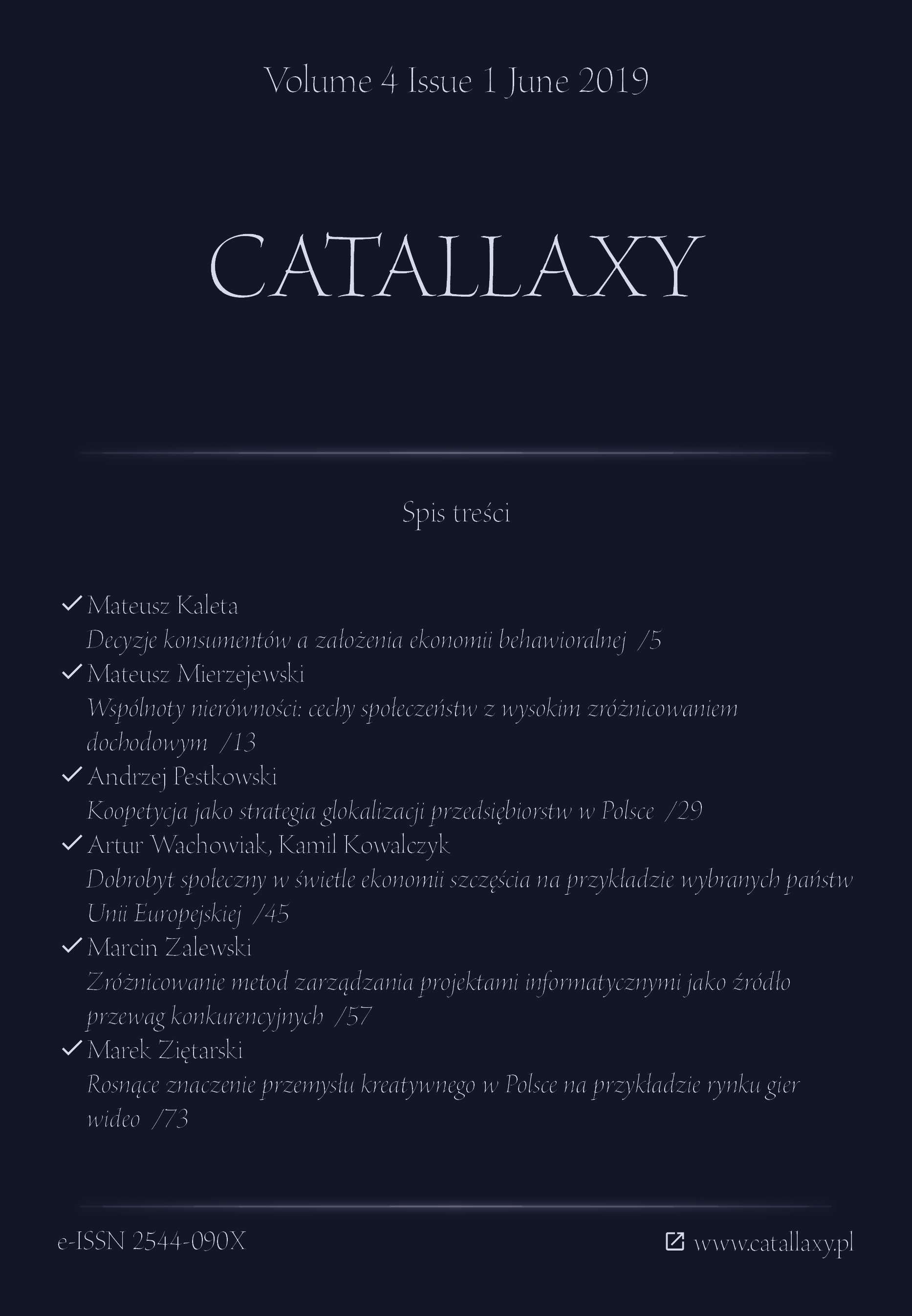Dobrobyt społeczny w świetle ekonomii szczęścia na przykładzie wybranych państw Unii Europejskiej
Social welfare in light of the economy of happiness based on selected European Union countries
Author(s): Artur Wachowiak, Kamil KowalczykSubject(s): Economy, Supranational / Global Economy
Published by: Instytut Badań Gospodarczych
Keywords: wealth; happiness; contentment; macroeconomics
Summary/Abstract: Motivation: One of the basic problem in macroeconomics is issue of wealth of nations. In the past, a significant part of economists, used to identify the scale of economy, or dynamics of its growth, with the life rate. Nowadays, the evaluation of wealth of a society comes down to the rating the quality of life in a given country. In the mainstream of macroeconomics discourse, Gross Domestic Product (GDP), alongside with its derivatives, is used as a key method of measurement. Unfortunately, those indicators do not include a number of key aspects, that influence the wealth ratio. Because of that, throughout the years a new, expanded approach and new indicators were developed, for example the Human Development Index (HDI). It seems essential to consider their cognitive value in the context of a modern approach to the economy of happiness. For this purpose, an overview of the most popular wealth and quality of life indicators was compiled, and was confronted with non-economic data considering the processes happening in societies, with a main focus being the interpretational disparities, and possible different outcomes.Aim: The aim of the article is the evaluation of quality of life rate by overviewing available solutions and methods, and confrontation of the result with public statistic data considering the selected countries of the European Union (EU).Materials and methods: The systematic review and critical analysis of sources, aggregated macroeconomics data analysis and public statistics were used. Data published by Eurostat, Organisation for Economic Co-operation and Development (OECD), World Health Organization (WHO) and the World Bank were considered empirical material.Results: There are significant differences in the evaluation of life quality between the indicators used in the main economics discourse and the empirical data from other studies i.e. social and medical.
Journal: Catallaxy
- Issue Year: 4/2019
- Issue No: 1
- Page Range: 45-55
- Page Count: 12
- Language: Polish

